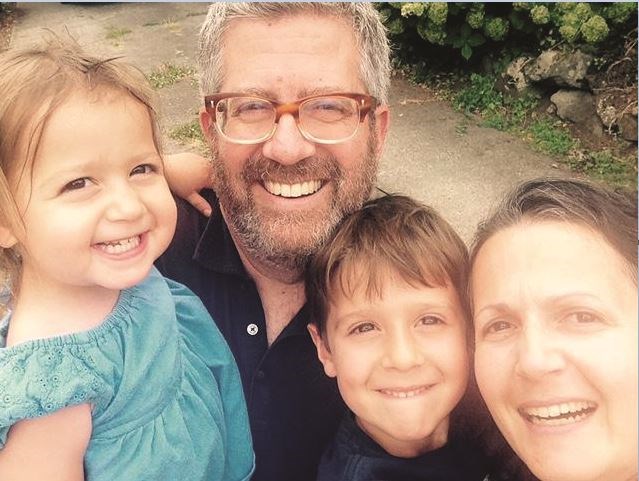Since moving recently to Richmond from the United States, my wife Judith and I have noticed the famous Canadian habit of apologizing.
Indeed, a friend of mine who was born and raised in Vancouver advised me (facetiously…I think) before moving: “Just begin each conversation with an apology, and you’ll be fine.”
Given the time of year on the Jewish calendar, I’ve been thinking quite a bit about seeking forgiveness.
As we prepare for the holiest period of the year, the Ten Days of Awe, beginning with Rosh Hashanah, the Jewish New Year, and culminating with Yom Kippur, the Day of Atonement, many Jews are engaged in a process of intensive introspection and spiritual “account-taking.”
This is a period in which we seek forgiveness from those we’ve hurt, strive to change those aspects of ourselves that cause pain to others, and pray to God to help us in the process of teshuvah, a Hebrew word meaning “repentance” but perhaps best understood as a return to our best selves, to restored relationships with others, and to God.
At the center of this process is the apology. Some apologies are easy, such as the non-apology apology (beloved by politicians and famous athletes): “I’m sorry if anyone was offended.”
At the next level is the “sorry about that” one might say after accidentally bumping into a stranger in a crowded airport, a well-meaning effort at basic politeness more than genuine expression of remorse.
The most authentic and heartfelt form of apology is the one uttered to a parent, spouse, friend, or daughter/son for a lifetime of emotional wounds, for a pattern of behavior that rears its ugly head despite our best intentions.
It is grounded in a profound sense of regret, and in some cases requires a great deal of effort, even courage, to express.
Do we have the capacity for healing and forgiveness?
As difficult as it is, the Jewish tradition insists that finding a way to forgive those who have hurt us is within our grasp.
The Talmud teaches: “All who are willing to overlook [other’s insult], that person’s sins are overlooked.”
The great French medieval sage Rabbi Shlomo Yitzhaki adds that one who gives another the benefit of the doubt “brings peace to them both.
By saying ‘he meant well’ or ‘she did not mean to injure me,’ there is peace between them.”
Note that these teachings do not mention that an apology must precede forgiveness.
Instead, we are urged to find the capacity to let the hurt feelings that have accumulated over the past year go before any apology is forthcoming.
We must prepare the soil before mercy and compassion can grow and flourish.
May this season of repentance bring us closer to a time when God “will turn the hearts of parents to their children, and the hearts of children to their parents…” (Malachi 4:6). L’shanah tovah u-metukah – warm wishes for a sweet new year of forgiveness and renewal!
Adam Rubin is the new rabbi of Beth Tikvah Congregation in Richmond. He and Judith, along with their young children Elior and Na’amah, invite you to join them for Rosh Ha-Shanah and Yom Kippur services at Beth Tikvah. Please send an email to bethtikvah@btikvah for more details.



